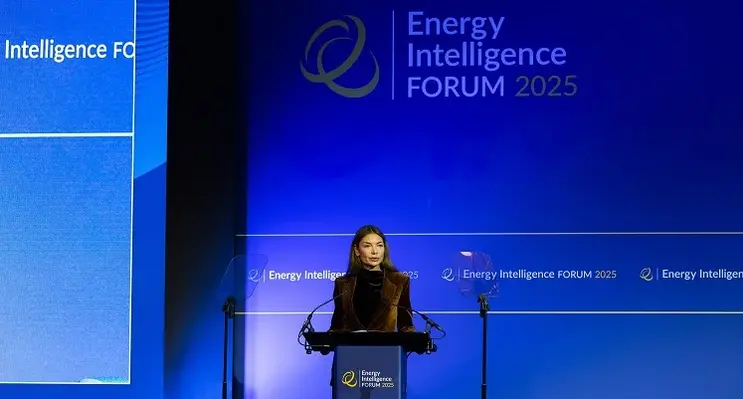The rise of energy and technology sovereignty, underinvestment concerns in oil and gas and the growing role of AI and innovation were key themes at the 46th Annual Energy Intelligence Forum
The event, which took place in October in London, brought together the leading energy ministers, CEOs and senior executives from the Americas, Europe, Middle East, Africa and Asia under the theme: “Restructuring the World Order: Energy in the Age of Protectionism”. Over three days, the Forum discussions centred around the need for nations to prioritise energy security in a more multipolar world, and how the rapid rise of technology will transform the energy industry.
Lara Sidawi Moore, deputy CEO and chairman of the Executive Committee at Energy Intelligence summarised the vital role that the Energy Intelligence Forum plays in the future of the energy industry in her remarks: “In a world defined by change, clarity is power. At the heart of every decision lies intelligence – sharp, uncompromising, and forward-looking. This is where insight meets influence.”
Indian Petroleum Secretary Pankaj Jain told the Forum that security of energy supply concerns have led India to push domestic deepwater exploration. The need for greater energy independence is behind India’s target to produce 5 million tons per year of domestically produced green hydrogen by 2030, which Jain said will be met “very easily.”
His Excellency Karim Badawi, Egypt’s Minister of Petroleum and Mineral Resources, outlined efforts to attract greater investment into oil and gas exploration. He called for an “energy injection” with at least 14 exploration wells planned for the Mediterranean alone and 100 across onshore and offshore blocks in Egypt.
PETRONAS president and Group CEO Tan Sri Tengku Muhammad Taufik emphasised the essential role that oil and gas must play in the energy transition, and shared concerns of underinvestment. “We need more exploration, whether we like it or not,” he said.
“The transition hype has not been matched by reality on the ground,” said Amin H Nasser, president and CEO of Aramco. "This is not a true energy transition, this is an energy addition which requires all hands on deck."
European, US and Australian energy CEOs cautioned that the EU’s proposed Corporate Sustainability Due Diligence Directive (CSDDD) and methane regulations threaten to undermine Europe’s energy security. ConocoPhillips CEO Ryan Lance warned that if the regulations, which carry fines of up to 5% of global revenues, were not changed, his company would divert gas supplies away from Europe. “We'll bypass Europe and go to Asia and to other parts of the world. It's that significant,” Lance told delegates.
The conference also addressed how technology is accelerating the energy transition. EIG Global Energy Partners CEO Blair Thomas said that low-carbon energy still needs to prove it can deliver competitive returns. "We're going to have to retrench, we're going to have to get more efficient, and deliver rates of return," Thomas said.
Octopus Energy CEO Greg Jackson highlighted how energy disruptors are reshaping energy production and consumption, from smart use of renewables-based electricity, to cheap battery storage, to the widespread adoption of electric vehicles.
AI’s growing influence on energy demand and supply formed a major part of the discussion on Oct. 15. Following a new white paper published by Energy Intelligence, AI and Energy: Beyond the Hype, AI specialists agreed that power demand will rise through 2035, after which the picture becomes less clear. Growth will vary globally, with some regions more exposed to higher usage than others.
AI offers opportunities across the energy industry, from exploration to low-carbon technology development. However, there are also a number of risks that companies will need to manage, including growing local opposition to data centres in some jurisdictions, geopolitical competition over chips and resources and critical infrastructure vulnerabilities.
Alex Schindelar, president of Energy Intelligence, said, “We’ve identified two new trends in the geopolitics of energy. First is the rise of energy sovereignty, which is the drive for nations to produce as much energy as they can.
“The second is technology sovereignty, where countries strive to keep critical minerals, technology manufacturing, data centres and intellectual property within their own borders. These themes were at the heart of the discussion at this year’s Forum."
Energy in the age of protectionism

Lara Sidawi Moore, deputy CEO and chairman of the Executive Committee at Energy Intelligence. (Image source: Eneryy Intelligence)







